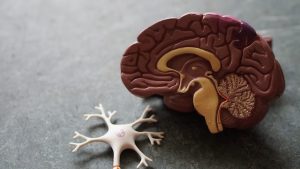Featured Products
Explore Products- In-Stock Tumor Cell Lines
- Human Orbital Fibroblasts
- Human Microglia
- Human Pulmonary Alveolar Epithelial Cells
- Human Colonic Fibroblasts
- Human Type II Alveolar Epithelial Cells
- Human Valvular Interstitial Cells
- Human Thyroid Epithelial Cells
- C57BL/6 Mouse Dermal Fibroblasts
- Human Alveolar Macrophages
- Human Dermal Fibroblasts, Adult
- Human Lung Fibroblasts, Adult
- Human Retinal Muller Cells
- Human Articular Chondrocytes
- Human Retinal Pigment Epithelial Cells
- Human Pancreatic Islets of Langerhans Cells
- Human Kidney Podocyte Cells
- Human Renal Proximal Tubule Cells




 Human oligodendrocyte progenitor cells (OPCs) are a population of precursor cells found throughout the central nervous system (CNS). These cells possess the remarkable ability to differentiate into mature oligodendrocytes, which are specialized glial cells responsible for producing myelin, a lipid-rich membrane that provides insulation to neuronal axons. OPCs serve as a pool of migratory and proliferative adult progenitor cells, playing a crucial role in the generation and maintenance of myelinating cells in the CNS. Impaired differentiation of OPCs into mature oligodendrocytes is a significant factor contributing to the development of demyelinating diseases, highlighting the importance of understanding and harnessing the potential of these cells for therapeutic interventions.
Human oligodendrocyte progenitor cells (OPCs) are a population of precursor cells found throughout the central nervous system (CNS). These cells possess the remarkable ability to differentiate into mature oligodendrocytes, which are specialized glial cells responsible for producing myelin, a lipid-rich membrane that provides insulation to neuronal axons. OPCs serve as a pool of migratory and proliferative adult progenitor cells, playing a crucial role in the generation and maintenance of myelinating cells in the CNS. Impaired differentiation of OPCs into mature oligodendrocytes is a significant factor contributing to the development of demyelinating diseases, highlighting the importance of understanding and harnessing the potential of these cells for therapeutic interventions.